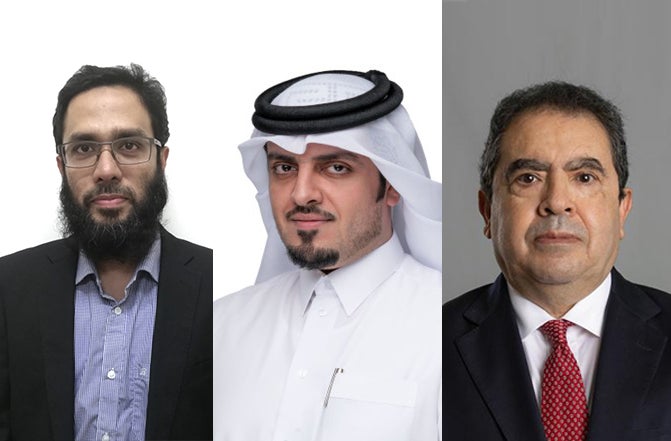SoccerNet predicts football match results with an 80% accuracy rate by analyzing teams’ performances on the pitch

Jassim Mohammed AlMulla, a Qatari PhD student at Hamad Bin Khalifa University’s (HBKU) College of Science and Engineering (CSE), and his supervisor Dr. Tanvir Alam, Assistant Professor, co-created “SoccerNet,” the first deep learning based Artificial Intelligence (AI) based model in the MENA region capable of predicting the result of a professional football match with a high rate of accuracy.
Detailed in SoccerNet: A Gated Recurrent Unit-based model to predict soccer match winners - an article published in esteemed academic journal PLoS One - the team trained SoccerNet utilizing data from Qatar Stars League (QSL) matches between 2011 and 2022. Built on a Gated Recurrent Unit framework, the AI model analyzed players’ performances during football matches in real-time and revealed detailed insights into their individual impact on the pitch.
SoccerNet achieved an 80% accuracy rate in predicting match winners based purely on analysis of player data. It also revealed the collective influence that the teams’ forwards, midfielders, and defenders had on any given football match, and also underlined that the last 15-30 minutes were the most impactful on any game’s outcome.
“Our dedication to utilizing Artificial Intelligence across various domains, including sports, for Qatar's advancement remains steadfast. This research endeavor aims to assist the football team in strategizing and enhancing crucial aspects that could contribute to their success in professional matches,” said Dr. Mounir Hamdi, Founding Dean, CSE.
AlMulla - who is enrolled in the PhD in Computer Science and Engineering program at HBKU’s CSE - and Dr. Alam observed that while similar computational methods already existed, they were designed with foreign football leagues in mind. With the support of the Qatar Football Association (QFA) and Qatar National Research Fund (QNRF), the duo aim to bring such a technology to the country to better support QSL players and coaching staff and assist their overall development.
“We are grateful to QNRF for their unwavering support of this critical and valuable study. Thanks to them and the QFA, we were able to lend our expertise toward strengthening professional football in Qatar,” said AlMulla.
“To the best of our knowledge, this is the first study focusing on players’ performance to predict the winning team based on deep learning techniques in any MENA region football league. The proposed machine learning model will support players, coaching staff, and team management in Qatar to focus on specific performance metrics that may help them win football matches,” said Dr. Alam.
HBKU's CSE engages and leads in research disciplines of national and global importance. The College seeks to innovate and find solutions to pressing issues in Qatar and beyond, equipping students with the tools and skill-set to lead in their own fields and innovate.





